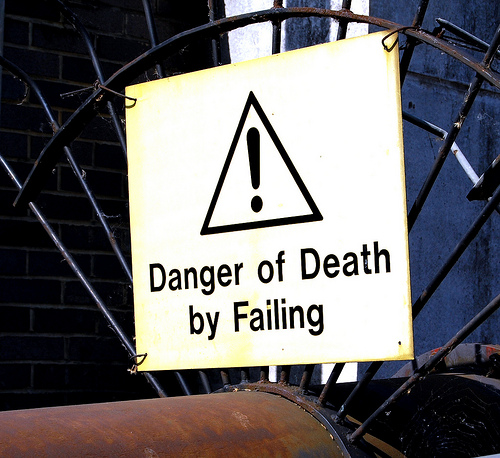What do you do when confronted by a distressed teenager who is certain their life is ruined? Recent events have destroyed their hopes of a meaningful and enjoyable existence.
During adolescence teenagers are a mix of massive insecurity, fluctuating hormones, rapidily changing brains, increasingly sophisticated thinking abilities, and terrifying new levels of self-awareness. All of this with very little experience of life and the acquired wisdom that comes from numerous years on the planet.
It is this rich cocktail of physcological and physiological turbulence that can cause teens to spiral downwards into bouts of exagerated negative thoughts and acute anxieties. Sometimes these anxieties give way to catastrophizing.
Catastrophizing occurs when we have irrational thoughts believing that something is far worse than it actually is. That is we take a small problem and turn it into a catastrophe in minds.
While people of all ages are prone to catastrophizing, teenagers are specially designed for it, and they do it very, very well.
To understand it a bit better it is helpful to consider the two types of Catastrophizing.
Catastrophizing the Present
This is when a teenager exaggerates the negative consequences of a current situation and makes a mountain out of a molehill.
Jane is dressed in her new outfit and about to leave to meet her friends when she spills a drink and it splashes down the front. She is mortified that she will be unable to get the dress clean in time and wear it. To wear anything else in her wardrobe to this function will be a disaster. She will be ignored all night and the subject of gossip for weeks to come.
Jim has a big assignment due tomorrow. He has worked on it and got it done, but as he reads through it he finds a couple of errors. His disappointment at the errors evolves into overwhelming doubts about the suitability of the assignment. He convinces himself his entire assignment is inadequate and the teacher is going to fail him and think he’s an idiot.
Catastrophizing the Future
Future catastrophizing occurs when the teenager looks to the future and anticipates all the things that are going to go wrong. By focusing on these thoughts teens begin to believe everything will always go wrong. Their mentality can shape their reality.
Emily has a big exam coming up. It is a significant exam and she has being studying hard. However she anxious about it and has created a belief in her mind that she is going to fail. She extrapolates this into the future believing that she will fail her senior year of high school, never get a good job, and spend the rest of her life poor and miserable.
Or another example might be David and his girlfriend have just had an argument. He can’t believe the things they said to each other. In his mind the relationship is doomed, and so is his chance of ever again finding happiness in love.
Helping Teenagers Overcome Catastrophizing
1. Acknowledge their Distress. The first and most important thing you can do is to stop and pay attention to what is happening to them. Rather than trying to fix the situation, simply provide comfort and let them express their anxiety. Listen carefully to what they are saying, their words will often contain their fears. Knowing what it is they are scared of will help later on. You will be able to move forward when the teenager senses you have heard them and believes you want to care for them.
2. Let them know what they are doing. Teenagers need someone from outside the world they have created to call them back to reality. Once you have acknowledged their distress, you need to gently help them see that how they are viewing the situation is neither helpful or accurate. Often the best way to do this is with some leading questions:
- Do you really think that is what will happen?
- Will this really change all those things?
- Has anything like this ever happened before? Have you survived?
- Do you think you be might be getting things a little out of perspective?
3. De-catastrophize their thinking. Once you have alerted them to the fact they are catastrophizing you are in a position to help them de-catastrophize, or re-frame, their outlook. This is done by helping them explore more constructive thought processes and actions.
- What is the worst thing that could happen in reality?
- Have you tried to do your best?
- Everyone has made mistakes, that is how we learn and how we get better.
- Is there a way to rectify the situation?
- If this doesn’t work out what is to stop you from trying again?
- Will this matter in five years time?
4. Ask what they would like from you. Assuming you have got the teenager thinking a little bit more rationally you can then ask them if there is anyway you can assist them in taking a constructive step forward. They be okay having talked through the issue with you and calmed down. They may want you to help them think through possible ways to resolve the problem, or they might just need you to help them do something practical (like help them edit their assignment or pick out a new outfit).
5. Be Watchful. Sometime negative thoughts and anxieties can develop and become habitual. Prolonged periods of negativity or increasingly severe levels of anxiety can be symptoms of more serious problems such as depression, suicidal thoughts, or other mental health problems.
Image by PhotoGraham






